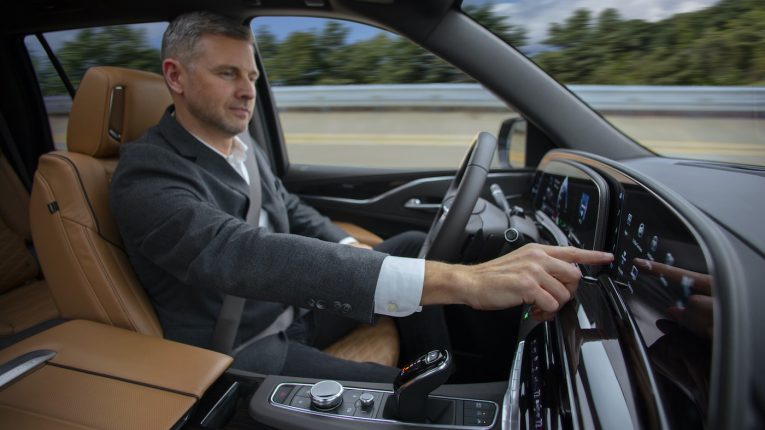
How the Automotive Industry is Being Transformed by Data and AI
Using data and artificial intelligence to power advanced safety features on connected vehicles is just one example of how the automotive industry is changing due to digital transformation. However, the impact of digital transformation is not limited to advanced safety technology but includes predictive maintenance and other cost-saving initiatives.
AI Facilitates Workflows and Streamlines Supply Chains
Using AI to streamline supply chains in the automotive industry can be a huge advantage for businesses. AI can enable faster and wiser decision-making and help identify potential risks. It also helps create a safer workplace.
The benefits of implementing AI include real-time monitoring of operations, streamlined workflows, and timely insights. It can also predict unforeseen abnormalities and bottlenecks. For example, a vehicle that isn’t performing well can be fixed before it causes a loss in sales.
AI can also help companies stay competitive. It can enable dealers to work more efficiently and improve customer relationships. It can even provide tailored financial solutions that can increase dealer margins.
AI can help companies better manage their inventory and prevent overstocking. It can also forecast demand and schedule downtime. In addition, it can help analysts see patterns and make accurate forecasts that affect the vehicle analytics market. It can also help eliminate bottlenecks along the supply chain and streamline production scheduling.
AI-based automated tools can ensure that warehouses run efficiently, record stocking parameters, and analyze workplace safety data. They can also ensure that manufacturers are aware of potential risks.
AI Helps Drive Down Costs Through Quality Improvement And Waste Reduction
Using AI to drive down costs through quality improvement and waste reduction in the automotive industry has great potential. However, developing a business case and incorporating the technology into your organization may take some time.
Early adopters can benefit from a variety of advantages of the use of AI. For instance, the ability to predict failures can reduce operating costs and downtime. Similarly, combining sensor data from the Internet of Things (IoT) can help improve supply chain planning.
Ultimately, successful implementation requires a firmwide strategy change. Companies must develop a robust analytics program, modern software disciplines, and a vital governance process.
Hyper-Automation Will Be The Driving Force Behind Digital Transformation
Whether it’s a customer-facing service, a transaction, or a business process, automation technologies can improve quality, efficiency, and productivity. And they can also lower costs. But you’ll have to redesign processes and implement new technologies before you can realize the full benefits of automation. This can be an incredibly complex and challenging task.
Many companies have identified significant opportunities to apply automation to their operations but need help implementing new approaches at scale. This can be a difficult challenge because many different processes and technologies are involved.
To ensure your automation program is ready for launch, you’ll need to begin with a comprehensive assessment of your organization’s processes and skills. Then, you’ll need to customize your chosen technologies. You’ll then need to create a road map to large-scale automation. You’ll want to balance short-term tactical wins with a long-term vision.
Among the technologies, you’ll need to adopt robotic process automation (RPA), natural language processing (NLP), and deep learning. These technologies can help you identify customers’ emotional tones, improve call routing, and increase sales.
AI-Powered Advanced Safety Features on Connected Vehicles
Using artificial intelligence to power advanced safety features on connected vehicles can help drivers avoid road accidents. AI can also monitor and detect distracted, erratic, and drowsy driving.
A distributed road safety network needs to know where moving objects are located, their velocity, and their topology. This information, along with the incorporation of innovative imaging technology such as the Pregius S Camera can be used to assess risks and apply interventions. In addition, the network can provide warnings of dangerous conditions.
As technology advances, more advanced vehicle safety features are being developed. These include radar-based detection units, camera-based machine vision systems, and automated braking. These features can help avoid collisions between fleets of commercial vehicles and retrain drivers to drive more safely. These technologies are becoming essential to the design of autonomous vehicles.
AI-Powered Predictive Maintenance
Using AI-powered predictive maintenance in the automotive industry has many benefits. These include improving safety, reducing downtime, and saving money. In addition, these solutions can enhance the user experience.
A predictive maintenance solution can monitor a vehicle’s sensors and alert the driver to any problems in real-time. It can proactively alert the driver about potential issues before they cause a crash. It can also optimize auxiliary power consumption and heat rate, among other things.
The main advantage of predictive maintenance is the ability to spot and avoid problems before they occur. These tools enable companies to make better decisions and maximize the useful life of their assets. They can also increase production by 20 to 25%. In addition, they reduce maintenance costs by 25 to 30%.
One of the most significant advantages of AI-powered predictive maintenance in the automotive industry is the amount of data it can process. This is achieved through big data and machine learning. This technology can process massive amounts of sensor data more efficiently than humans can and spot anomalies in utility data.



